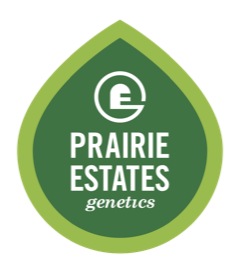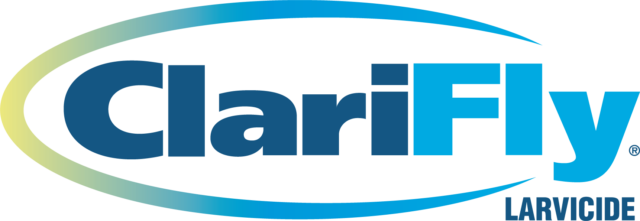Dear Dairy Industry,
On a recent dairy industry conference call, Dr. David Kohl, part owner of Homestead Creamery in Wirtz, Virginia, and professor emeritus at Virginia Tech, said something that really struck a chord for our organizations: “Don’t equate your self-worth to your net worth.”
That simple reminder precisely articulates what we want dairy business owners and farm families to keep in perspective, even in these unprecedented times. As a dairy owner, you define your business, not the other way around. Especially now, we must focus on what we can control and not dwell on what we cannot control.
We are not alone in the challenges we face. This COVID-19 pandemic has tested every citizen of the world’s resolve to control what they can, from healthcare workers giving endless hours of their time, to seniors cut off from their grandchildren, to parents caring for those children 24/7, to high school seniors who have seen their memories ripped away, to restaurant owners who don’t know how they will make their next mortgage payment. We are all in this together, and the world is depending on us as farmers to find solutions to move forward.
One thing that is amazing about our farm community is our ability to come together. When there is a disaster on one farm, others in the community rally around them to help. If a barn is lost to a fire or a winter roof collapses, neighboring dairies are on the scene immediately to help move cows and shelter them for as long as it takes until a new barn is built. If someone is hurt in a farming accident or is struggling with an illness, neighbors and friends step up to get the farm work done. As most of the world comes together to lift their heads, push forward and take care of each other in response to this pandemic, the dairy community is leading the way and modeling that very behavior for everyone.
We in dairy are so interconnected, and the success of one point in the chain ultimately ripples throughout the chain, for good or bad. And, like all other industries, dairy has experienced unprecedented ripple effects resulting from the “shutdown.” Pennsylvania’s family-owned independent dairy processors, as well as large and small farmer-owned cooperatives, are seeing milk pushed back into the system from all sides, with school milk sales down dramatically, restaurants closed and food service business way down due to many institutions across the state closing. Pennsylvania is not alone in this battle, with the National Milk Producers Federation anticipating a 10% to 15% decrease in dairy demand nationwide over the next three months.
But as always, the dairy industry is doing whatever it can to adjust and overcome. Every milk handler is working exceedingly hard to manage very complex dynamics related to their own milk market. It is a challenging balancing act given that some dairies with higher portions of milk going into retail fluid milk markets are managing well enough, while those shipping a lot of product into food service and restaurants, or who relied heavily on school milk sales, are struggling to find outlets. Manufacturing plants are also doing the best they can to maintain normal operations with employees off sick, modified runs to allow for social distancing and downtime to ensure proper sanitizing between shifts.
Many in the industry are searching for solutions to this situation and seeking light at the end of the tunnel. We have witnessed people stepping up and stepping in like never before to get our milk to the marketplace. Cooperatives and independent dairies are working together to find homes for the milk, with dairy donations and sales to food banks at unprecedented levels. Folks from the service and supply side of our industry have also stepped up when they have seen a need to get milk on the grocery store shelves and into food banks. Individuals and rural community charities are also donating their time and money to get milk to the families who need it most.
Policymakers at the state and federal levels are working around the clock to find answers, with the USDA contemplating how to allocate the limited support in the coronavirus aid bill to dairy and other segments of agriculture hit hard by this pandemic. Both the Pennsylvania Department of Agriculture and the Pennsylvania Milk Marketing Board are exploring every possible avenue to streamline processes, ease the regulatory burden and keep milk flowing to market.
The USDA announced in April the Coronavirus Food Assistance Program (CFAP), a $19 billion USDA program that’s part of COVID-19 emergency relief. The program directs $2.9 billion of that to direct dairy payments, along with $100 million per month for dairy product purchases. Although we recognize it is not enough to stave the losses that our farms and our industry are incurring, we are encouraged by this action and the relief it will provide to farms. We are hopeful that this will be the first of several actions the USDA takes to provide relief to dairy farms, and dairy organizations across the nation are working with ours to persuade the USDA and Congress to keep it coming.
Those in dairy are resilient, smart and strong. We need to tackle this situation like any other problem on the farm. It is up to all of us continue to look for solutions and to support each other as we work through this pandemic. Ingenuity is nothing new to any of us in the dairy industry – whether it is make-shifting a part out of scrap metal or renovating an old barn to expand the herd. We will use the tools and leverage the resources we can find, maintain a positive “I can” attitude and find a way forward.
The sun always rises, and we as dairy farm families rise with it. There are not many jobs that are filled with more pride than a dairy farmer helping to feed a hungry world. We must rise above our challenges and the negativity to look for solutions and positivity. The next few months will not be easy for any of us, but this pandemic will pass. With our heads up and looking forward, we will continue to do everything within our control to find a way forward. And we will work together, support each other and ultimately come out of this much stronger for it.
We are grateful for the efforts of so many who are working as best they can to find the solutions to this new dilemma the pandemic has created. It is important that we continue to support all segments of the industry, even as we recognize the extreme challenges we are all facing right now.
Sincerely,
Jayne Sebright, executive director, Center for Dairy Excellence
Alan Novak, executive director, Professional Dairy Managers of Pennsylvania
Dave Smith, executive director, Pennsylvania Dairymen’s Association
Brett Reinford, president, Professional Dairy Managers of Pennsylvania
Mark Mosemann, chairperson, Center for Dairy Excellence
Glenn Gorrell, president, Pennsylvania Dairymen’s Association





